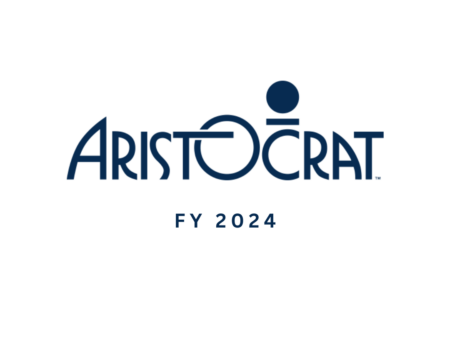In the aftermath of the pandemic, Macau’s gaming industry has shown impressive recovery and growth. However, this flourishing sector is not without its challenges. A recent statement by industry figure Leong has highlighted critical issues regarding worker benefits and working conditions, raising concerns that need immediate attention.
Current State of Macau’s Gaming Industry
Impressive Revenue Growth
Macau, often dubbed the “Gambling Capital of the World,” has experienced a significant resurgence post-pandemic. In July 2024, the region’s gross gaming revenue surged by 11.6% compared to the previous year. This growth, while falling short of some predictions, still indicates a robust recovery and an optimistic outlook for the industry.
Worker Benefits: A Critical Oversight
Despite the sector’s success, there is a growing concern that the benefits provided to gaming workers have not kept pace with the industry’s expansion. Leong’s recent comments shed light on the discrepancies between the industry’s economic growth and the reestablishment of workers’ benefits to pre-pandemic levels.
Challenges Faced by Frontline Workers
Increased Workload and Insufficient Staffing
With the surge in visitor numbers and the expansion of gaming operations, frontline workers are facing increased workloads. According to Leong, the lack of adequate manpower has forced workers to manage more customers than before. This situation has led to heightened stress and physical strain, contributing to an overall decline in job satisfaction.
Adapting to New Technologies
The rapid evolution of gaming technology, including new electronic gaming tables and equipment, has further complicated the work environment. Workers are required to quickly adapt to these changes, often with insufficient training and support. The pressure to avoid mistakes has intensified, leading to frequent warning letters and even terminations for errors.
Psychological and Social Impact
The demanding work conditions are not only affecting workers’ professional lives but also their personal well-being. Leong’s statement underscores the impact on workers’ family and social lives, highlighting the physical and psychological toll of their job responsibilities.
Legislative and Regulatory Context
New Gaming Laws: An Overview
Recent legislation aimed at protecting gaming workers has been introduced. However, the enforcement of these laws has been inconsistent. The lack of rigorous scrutiny means that while laws are in place, their effectiveness in safeguarding workers remains limited.
The Role of Concessionaires
Leong has called for gaming concessionaires to play a more proactive role in addressing worker concerns. This includes hiring additional staff to alleviate the burden on current employees and revising policies to ensure that disciplinary actions, such as warning letters, are issued fairly and only for significant reasons.
Conclusion: Moving Towards a Balanced Industry
While the gaming industry in Macau continues to prosper, it is essential to address the concerns raised about worker benefits and conditions. By implementing measures, the industry can achieve a more balanced approach that supports both economic growth and the well-being of its workforce. This will not only contribute to a healthier work environment but also ensure the long-term sustainability of the sector.
FAQs About Concerns Raised Over Worker Benefits in Macau’s Gaming Industry
1. What concerns were raised about Macau’s gaming industry?
The concerns involve the disparity between the booming gaming industry and the lack of adequate worker benefits. Despite the industry’s impressive revenue growth post-pandemic, workers have not seen a reestablishment of their benefits to pre-pandemic levels, leading to increased stress and challenges in their roles.
2. What specific issues are frontline workers facing in Macau’s gaming industry?
Frontline workers are dealing with increased workloads due to higher visitor numbers and insufficient staffing. They are also struggling to adapt to new gaming technologies with limited training. These factors have resulted in physical and psychological stress, frequent disciplinary actions, and negative impacts on their personal lives.
3. How has the surge in visitor numbers affected workers’ conditions?
The increase in visitors has led to a higher volume of work for existing staff, putting additional strain on their physical and mental well-being. Workers are also facing more pressure to manage customer interactions efficiently and adapt to new technologies, contributing to a challenging work environment.
4. What new gaming laws have been introduced in Macau, and how effective are they?
Recent gaming laws were introduced to protect workers, but their enforcement has been inconsistent. The lack of rigorous scrutiny means that while the laws are on the books, they may not be fully effective in addressing the concerns of gaming workers.
5. What actions does Leong suggest to improve workers’ conditions?
Leong recommends that gaming concessionaires hire more staff to reduce the workload on existing employees. He also suggests revising disciplinary practices to ensure that warning letters are issued fairly and only for significant issues. Additionally, he calls for improved support and resources for workers to help them cope with new technologies and job demands.
6. What are the potential benefits of addressing these worker concerns?
Addressing these concerns can lead to a more balanced and sustainable growth for the gaming industry. Improved worker conditions and benefits can enhance job satisfaction, reduce turnover, and create a positive work environment, which can contribute to the long-term success and stability of the industry.
7. How did Macau’s gross gaming revenue perform recently?
In July 2024, Macau’s gross gaming revenue increased by 11.6% compared to the previous year. While this growth was below some predictions, it still reflects a positive trend and indicates a strong recovery of the gaming sector post-pandemic.


















